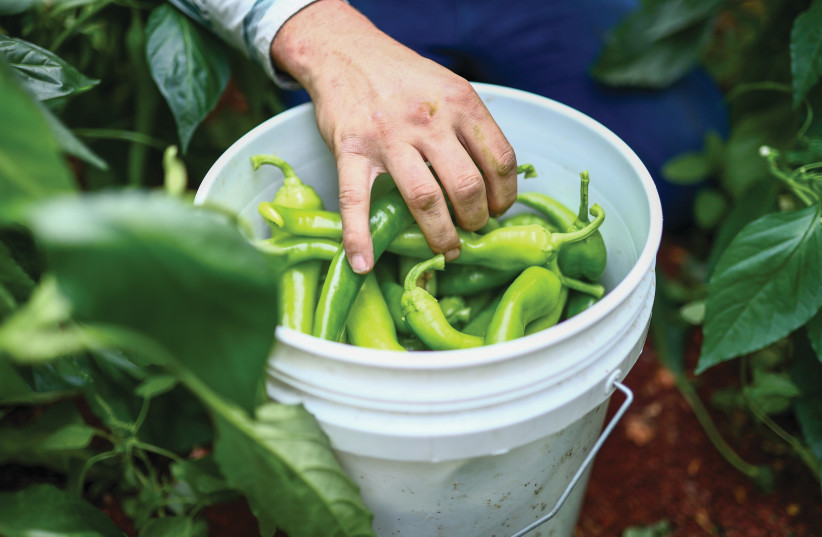When 27-year-old Aviva Banayan moved to Israel two years ago from New York, she had no doubts about her safety. She was confident that if any place in the world was suited to protect her, it was the State of Israel. But when chaos rained down in the form of rockets and brutal massacres of civilians and soldiers alike, everything she felt about life in Israel was put into perspective.
Six weeks ago, the lives of new immigrants to Israel Banayan and Jessica Goldblatt, both 23, were changed forever, leading them to a life-altering experience they never could have imagined.
Banayan had never experienced anything similar to war, much like many others who moved to Israel from abroad. Born in Monsey, New York, to a religious family with many brothers and sisters, Banayan just happened to have one of her brothers and sisters visiting for the holidays when the October 7 attacks occurred.
Moving to Israel and experiencing war with Hamas
The siblings leaned on each other in order to cope with what would become a new experience they did not plan to have at any stage in their life – as no one does.
“This is really my first time experiencing anxiety, especially like this. I hear a sound and I get scared now. This is a new experience,” she said.

Suddenly, she wasn’t thinking about what she looked like when she left the house to go hide in the hallway. Even though her building in Tel Aviv had a shelter, residents felt it did not meet their needs. Instead, they opted to gather in their stairwell, coming together as neighbors – from small children to the elderly alike. If this time has taught her anything, it is that safety comes first and no one cares about something insignificant as how they look – people care about safety and being together.
Banayan noted that one of the hardest parts of coping in the earliest days of the war was seeing the number of fatalities as they continued rising by the minute. While the death toll still shocks her and is painful, the unknown fate of more than 200 hostages haunts her as it does the rest of the nation.
“This is atrocious. It’s causing so much national depression, at least that’s how it feels,” she said.
Banayan told the Magazine that not only were rockets hitting her city, but some were hitting close to her home.
She expressed feeling a sense of confusion on October 7.
“We’re always praising the IDF, but it seems like they were gone for the first 12 hours. The police and IDF response wasn’t proportionate because it was so unexpected,” she said. “This is a reality check, a shock. It showed the flaws of something we thought was going to protect us, but it doesn’t feel like we’d be protected.
“It’s paralyzing,” she said.
Although the army has mobilized and created a sense of national pride while battling Hamas in Gaza, she shares that same initial anguish with the rest of the nation, mourning the captives.
“With social media, being American, and having a lot of non-Jewish friends, I’m used to having to educate people. But now, it’s really just feeling like a waste. The antisemitism is rampant and even if it’s tough, I reshare the content. It needs to be seen.”
She expressed just how moved she was by the efforts of community members. She has helped organize funds from the US, gone shopping for items, and has given her time to anyone who needs it.
GOLDBLATT MOVED to Israel from Johannesburg, South Africa, in April 2023. During rocket fire a month or so later, she was staying in Givat Shmuel and heard her first set of sirens. She barely spoke Hebrew and started to run but was taken into the home of an Israeli family she was passing.
This time around, she did not know what to make of the morning of the 7th. Her friend woke her up after the rocket fire started, and she expressed that she woke up feeling confused. As the day continued and they learned more information about what was happening throughout the nation, fear ensued.
Goldblatt said that one of her major feelings was helplessness. She was upset that she couldn’t do anything directly to help anyone and wanted to do more.
“I think one of the hardest parts is that I still don’t really know the country so well, my language isn’t great. But I just want to help, I want to be involved,” she told the Magazine. “However, I’m feeling a bit incapable of doing that.”
She noted that she is trying to keep herself busy, take breaks, and not let herself feel consumed by a sense of guilt in her inability to do more on a larger scale. She added that she’s been turning her phone on airplane mode from time to time in order to decompress and not be entirely consumed by social media and people checking in.
Olim from across the world acknowledge their choice to move to Israel and their fear of feeling like they are abandoning the nation. Immigrants to Israel become Israeli by choice, and in some cases, by necessity. Though they don’t want to be experiencing this war, they also don’t want to feel like they are abandoning the nation they have made their home.
